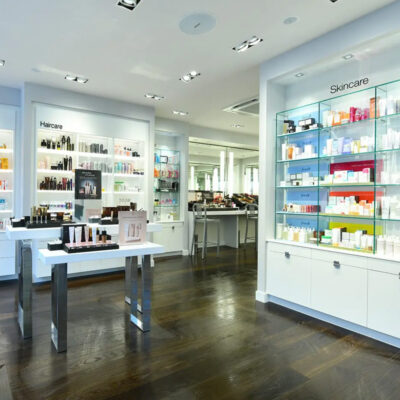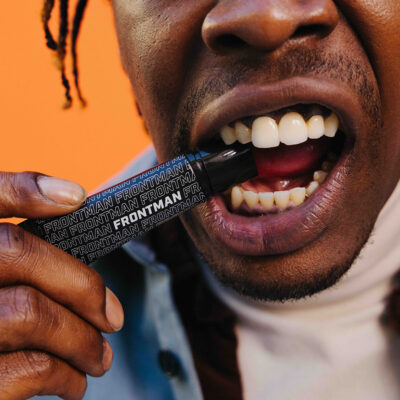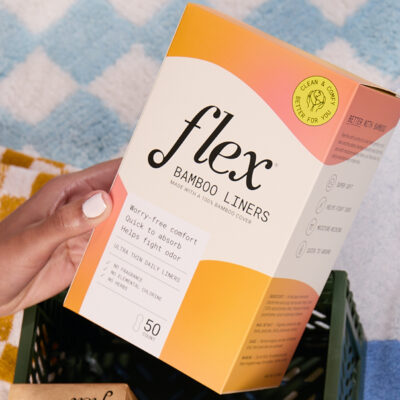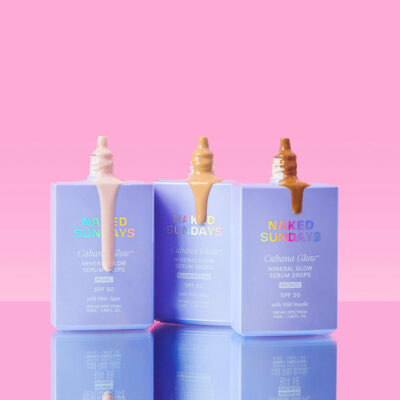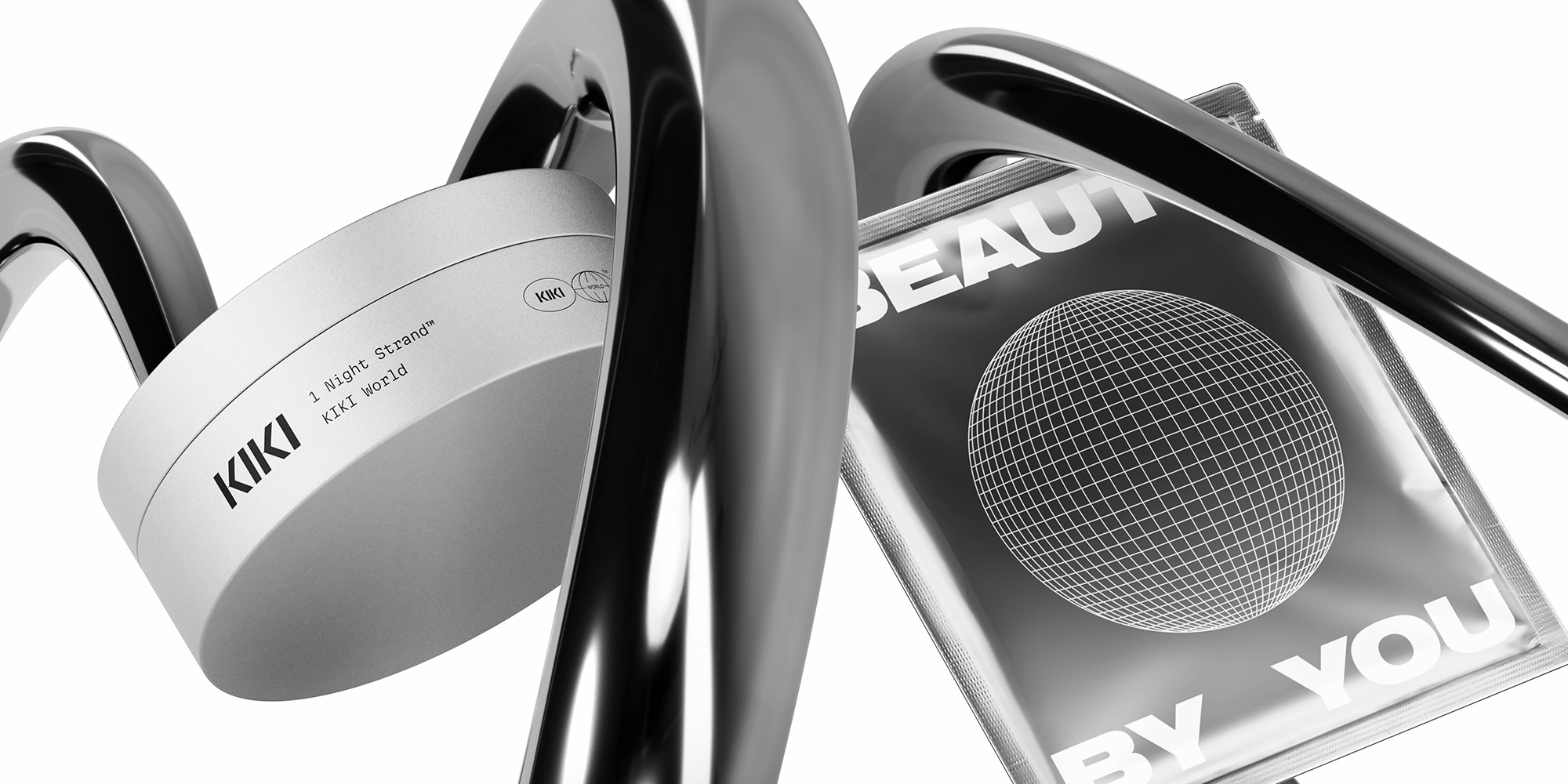
Kiki World Raises $7M From Estée Lauder And Others, Opens Platform Up To B2B Clients
Kiki World, the blockchain-enabled brand that invites consumers to weigh in on products prior to launch and rewards them for engagement, has raised $7 million in funding to help facilitate the spread of its technology to content creators and other brands.
Investors in the round, which was $2 million over Kiki’s goal and closed in the summer last year, include The Estée Lauder Companies’ venture capital arm New Incubation Ventures (NIV), Andreessen Horowitz’s crypto-focused fund A16z Crypto, consumer technology funds Double Down, 2Punks Capital and Advancit, digital communities RedDao and OrangeDao, and content creator GMoney. Kiki previously participated in A16z Crypto’s Crypto Startup Accelerator.
“In the context of the crypto market, Kiki has been a little bit of a unicorn in that we had an oversubscribed round in the total polar arctic winter of crypto, and I think the reason for that is that it’s a very real-world use case. It’s not a speculative use case,” says Kiki co-founder Jana Bobosikova. “We’re using blockchain as an infrastructure piece that allows us to deliver real things to the customers and unlock customer journeys that would be harder to make.”
In a statement, Shana Randhava, SVP for NIV at Estée Lauder, says, “Consumers are at the heart of what we do at The Estée Lauder Companies. That’s why we’re excited by the Kiki team’s vision of finding new ways to put the customer first. Kiki brand with their custom-built platform is leveraging the forefront of web3 tech to rethink the future of how consumers can co-create with brands and engage in new and relevant ways. This exploration of a new consumer-centric model provides ELC with a valuable window into the future of beauty.”

Also in a statement, Arianna Simpson, general partner at Andreessen Horowitz, says, “Historically, there’s been a deep connection between high-quality consumer brands and their customers, but it has been without direct input from the community, Kiki is now breaking down that barrier by letting consumers directly weigh in on what products they want to see created next.”
As Google purges cookies that collect consumer data for privacy reasons and brands look to reduce their dependence on social media algorithms, Kiki argues it presents a different way for them to entice consumers to their universe and keep them in it. Kiki uses Ethereum, a decentralized blockchain platform rooted in a peer-to-peer network that describes itself as “highly secure.”
“Especially in the luxury system, brands are trying to figure out how to create engagement not solely relying on Instagram and TikTok. I mean many luxury brands have exited those platforms completely,” says Bobosikova. She adds that, distinct from older consumers, Kiki’s typical consumers in the 18- to 24-year-old age bracket “don’t even come to a website unless there’s something to do. To them, the fact that they click and get rewarded is the most natural thing in the world. They wouldn’t even think to buy anything if they didn’t have that kind of a relationship to a creator or somebody else.”
There are three parts to Kiki’s B2B offering: Campaigns with a swipe feature letting people vote on product attributes and submit ideas; reward or loyalty programs issuing tokens that are translated into points consumers can redeem for perks such as free products; and universal profiles with preference, participation, reward and social graph data in a permission-less setup. The latest rollout is a self-service tool for creators, brands and private apps that’s based on a SaaS subscription pricing model.
“Brands are trying to figure out how to create engagement not solely relying on Instagram and TikTok.”
Started in May 2023, the Kiki brand is a test laboratory for the offering it’s providing to third parties. Kiki introduced campaigns with the swipe component a few weeks ago, and they’ve quickly become its feature with the most engagement. Kiki has reached over 10,000 members who’ve voted in excess of 37,000 times. Members are rewarded for voting with points.
The brand sells three products ($29 Pretty Nail Graffiti PNG, $34 Play Paint Marker and $12.99 Spot on Stickers), and two products available for pre-order are currently being voted on (Chipped, $49 NFC chip press-on nails, and 1 Night Strand, $34 temporary hair paint). On top of those products, people can vote on collaborations with makeup artist Colby Smith as well as content creators Cherry Chy and Eddie Motta.
Rather than bring in consumers to co-create products out of whole cloth with it, Kiki welcomes them to vote on a single product attribute like color. It has 30 products in its pipeline, according to Bobosikova, noting that merch and hair accessories are frequently requested. In March, consumers that purchased its products voted on average 4.6 times. In four to five months, Bobosikova reports that many customers have already bought Pretty Nail Graffiti PNG four to five times.
“We’re seeing four to five touchpoints on our platform before people buy, and that’s rather than going and chasing spend across ad networks and creators…We have an over 50% open rate on our emails,” she says. “It’s because of our rewarding and talking to people based on what they want rather than what they bought.”

She continues, “We see huge opportunity for each of our products to become really significant players within their category. Thinking about Nail Graffiti alone, it’s the only peelable nail pen that’s connected to the internet and created by the people. That in and of itself could be huge brand and all the brands that the Kiki platform birth could be huge brands, but…peer to peer will always be a bigger opportunity. We don’t necessarily feel that B2B itself is the biggest opportunity, but where we see the opportunity is enabling commerce between communities and among communities that want to be rewarded for participation.”
Upon Kiki’s launch last year, the brand told the publication Women’s Wear Daily it expected to hit around $2 million in first-year sales. Bobosikova declined to comment on whether it met that expectation or divulge a sales forecast for its second year on the market. She disclosed Kiki’s sales have been doubling monthly. Bobosikova says, “We’re not profitable yet, so we have a big job to do, but we’re set up with as a high-margin business to share our margins with our creators and collaborators.”
Bobosikova, former SVP at self-tanning brand Vita Liberata and VP of global marketing and sales at beauty incubator Marq Labs, founded Kiki with Brendon Garner, a partner at VC firm Imprint Ventures and former partner at venture company Department Six and ex-head of strategy at branding agency Assignment Studios, and Ricky Chan, co-founder of Assignment Studios and co-founder of defunct home fragrance brand Ours, under EPIC FutureLabs, an operating company designed to generate its own brands and work with existing health and cosmetic brands. EPIC FutureLabs has been phased out, and Kiki is being housed under a new incubator called 12:01.

